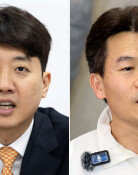[Op-Ed] Koreas 1st Pop Song
New dramas on the stage gained huge popularity with the public in Korea in the 1930s. Back then, people from the countryside believed a tour of Seoul was complete only after they watch such a play. Performances were packaged as a general gift set, comprising comedic and tragic plays as well as performances during intermission. In the interim, an actress sang songs. With no concept of trendy pop songs in the 1930s, Yi Aerisu, who looked girlish, cheerfully walked onto the stage of the Seoul theater Danseongsa and began to sing.
When night falls at Hwangseong Yetteo (the old site of Hwangseong Palace), only moonlight looks silent . As the three-part song with a melancholic tune streamed, audiences began weeping. Others tapped their feet. The song, which grew in popularity through word of mouth, was included in an album in 1932. This marked the birth of Koreas first popular song, Hwangseong Yetteo. The album sold 50,000 copies, an astounding achievement for the time and showing the immense popularity the song enjoyed. The Japanese colonial government banned the song, fearing it would trigger self-determination of the Korean people. Singer Yi, who was 22 when she recorded the song, became a celebrity nonetheless. Earning the nickname Lover of the Korean People, she became the countrys first pop music star.
Jeon Su-rin composed the song based on the emotion he felt when he visited the site of a Goryeo Dynasty palace. Only moonlight remained on the destroyed site. I came back to my residence, recollecting comparatively the glory years of ancient Korea with the era of Korea under Japanese colonial rule. I composed the song based on the emotion I felt, watching rain the following day, he said. The songs lyrics were written by Wang Pyeong, a famous actor and playwright.
The first name of the singer, Aerisu, was reportedly copied from the Western name Alice. She started acting in plays at age nine and enjoyed immense popularity with Hwangseong Yetteo, but disappeared in the 1930s. She attempted suicide after falling in love with a married man. Yi was believed to have died considering her advanced age, but was found last year alive at an asylum in Gyeonggi Province. She passed away Tuesday at age 99. It is a shame that Korea forgot about an artist who alleviated the pain of the Korean people under Japanese colonial rule. It is also regrettable that no records of live voices remain from the era when Koreas pop culture was just starting to get off the ground.
Editorial Writer Hong Chan-sik (chansik@donga.com)







